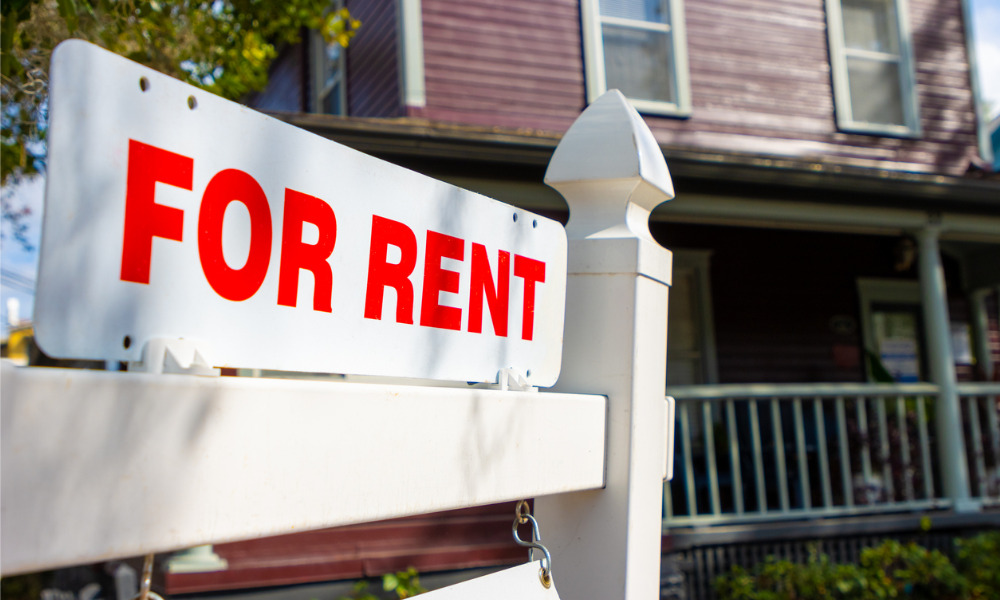Rents soar but landlords' income doesn't increase

A number of Taranaki landlords are on the brink of selling their properties amidst a chronic housing shortage as tax changes and rising mortgage rates bite.
One of them is Nicki Smith, Taranaki Property Investors Association president, who said what happens on election day will help her make up her mind on whether to sell one of her properties that houses multiple tenants.
The latest Crockers/Tony Alexander Investor Insight report revealed record numbers of Kiwi landlords were considering selling properties over the next year, with 30% of the 433 respondents saying they were thinking about selling a property in the next year – up from 25.3% in May, and above the survey’s average of 23.7%, Stuff reported.
Alexander said the increase was probably due to a further 25% drop in the proportion of mortgage interest investors could offset against rental income that came with the new financial year.
Another factor, he said, could be pressure from higher interest rates, and the combination was probably prompting more landlords to consider selling.
Taranaki is suffering from a chronic shortage of rental housing.
Smith said that when she advertises a vacant rental, she receives up to 150 applications.
In March, Kainga Ora homes in New Plymouth received 390 applications on its waiting list, 129 in South Taranaki, and 42 in Stratford, Ministry of Social Development figures showed.
But increasing costs of operating her business may push Smith to reduce her properties, despite strong demand for housing.
“I have two plans, depending on what happens on election day, that’s how impactful it is,” she said.
Smith said the decrease in tax deductibility was intended to hinder investors from buying properties and make it easier for first-home buyers. The government move meant landlords were paying thousands more in tax, as paying mortgage interest was a cost of the business of providing homes, she said.
“Not being able to deduct a legitimate business expense, that’s a policy I’m struggling with, I don’t think it's fair,” she said.
Smith recently raised the rents for flats in one of her properties after three years of not increasing rents.
“I’m paying $700 a month more in interest for one mortgage, so I increased the rent by $50 a week,” Smith said. “It’s still just below market rent, but $50 a week doesn’t add up to $700.
Landlords also have to spend more on rates, insurance premiums, and the improvements required to meet healthy homes standards.
“I’ve just put double glazing into a block of flats. All of my properties are healthy homes compliant, and I’m proud of that,” Smith said.
She said that of the 580,000 rental properties in New Zealand, 520,000 were owned by “mum and dad’ investors who own one or two rentals, most with mortgages on them, Stuff reported.
“It's a challenging time to be a rental property provider, definitely,” Smith said.
She said there had not been an increase in the income of landlords, despite a 40% surge in rent in Taranaki since 2019, and a 13.2% rise in just the past year, according to Stats NZ figures.
It was possible, Smith said, that landlords had been absorbing cost increases for some time, then lifted rents to catch up in one jump. Some landlords may have been letting properties at below-market prices but have been forced to move to a market rent by interest rate hikes and the tax increase.
The Taranaki Property Investors Association has set up a meeting with representatives from Labour, National, and Act, scheduled for Aug. 8, to hear about each party’s housing policies.
“We thought, let’s talk to the parties over the local MPs, so we can discuss the policies that are affecting us, and it’s affecting tenants and [people saving to become] first home buyers who are also tenants,” Smith told Stuff.
Use the comment section below to tell us how you felt about this.



